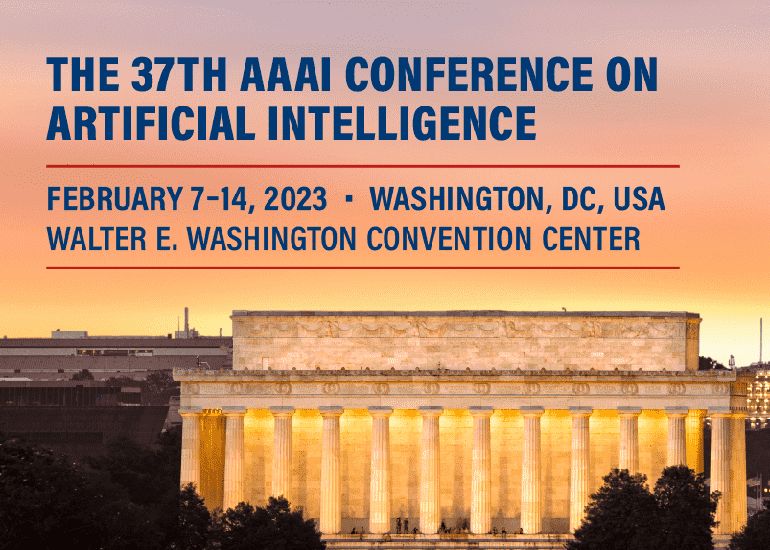Success of TU Wien at AAAI 2023
Many accepted papers by TU Wien researchers at one of the largest AI conferences worldwide.

The 37th Association for the Advancement of Artificial Intelligence Conference on Artificial Intelligence will take place from 07.02.2023 to 14.02.2023 in Washington, DC, USA, hosting one of the largest gatherings of researchers in AI worldwide.
TU Wien researchers have also contributed successfully to the conference. Their accepted papers are listed below:
-
Michael Bernreiter, Wolfgang Dvorak, Anna Rapberger, Stefan Woltran: The Effect of Preferences in Abstract Argumentation Under a Claim-Centric View
-
Václav Blazej, Robert Ganian, Dusan Knop, Jan Pokorny, Simon Schierreich, Kirill Simonov: The Parameterized Complexity of Network Microaggregation
-
Cornelius Brand, Robert Ganian, Kirill Simonov: A Parameterized Theory of PAC Learning
-
Markus Brill, Stefan Forster, Martin Lackner, Jan Maly and Jannik Peters: Proportionality in Approval-Based Participatory Budgeting
-
Jiehua Chen, Seyedeh Negar Layegh Khavidaki, Sebastian Vincent Haydn, Sofia Simola, Manuel Sorge: Game Implementation: What are the Obstructions?
-
Eduard Eiben, Robert Ganian, Thekla Hamm, Viktoriia Korchemna: A Structural Complexity Analysis of Synchronous Dynamical Systems
-
Johannes Fichte, Markus Hecher, Stefan Szeider: Inconsistent Cores for ASP: The Perks and Perils of Non-Monotonicity
-
Markus Hecher: Characterizing Structural Hardness of Logic Programs: What makes Cycles and Reachability Hard for Treewidth?
-
Lucas Kletzander and Nysret Musliu: Large-State Reinforcement Learning for Hyper-Heuristics
-
Stephen Kobourov, Maarten Loffler, Fabrizio Montecchiani, Marcin Pilipczuk, Ignaz Rutter, Raimund Seidel, Manuel Sorge, Jules Wulms: The Influence of Dimensions on the Complexity of Computing Decision Trees
-
Martin Lackner and Jan Maly: Proportional Decisions in Perpetual Voting
-
Franz-Xaver Reichl, Friedrich Slivovsky, Stefan Szeider: Circuit Minimization with QBF-Based Exact Synthesis

